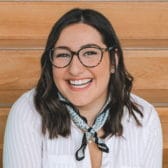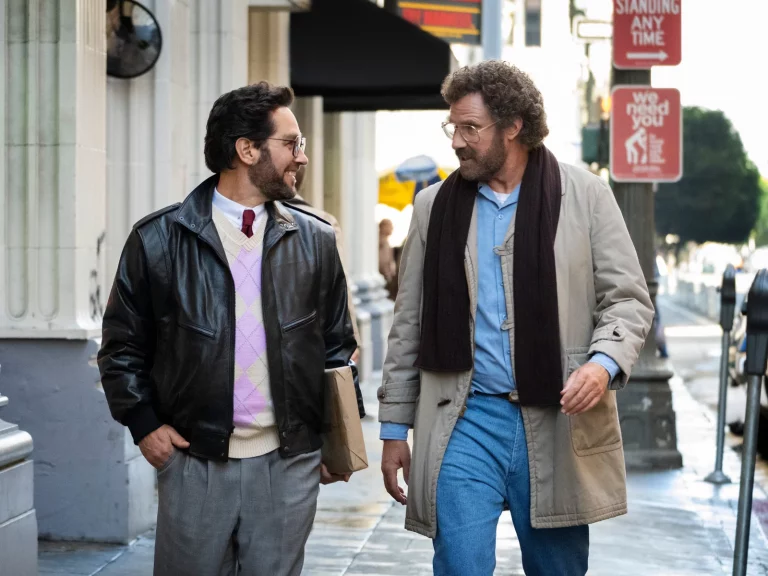
Google is buzzing lately wondering “is Will Ferrell is Jewish?”
I’ll cut to the chase: no, not even a little. But I know why you’re wondering — and it has nothing to do with his curly hair.
Last week, Apple TV+ released a new miniseries called The Shrink Next Door. In it, Ferrell plays a stereotypical New York Jew – accent and all. In one scene, Ferrell even reads from the Torah, and he actually does a good job!
(Side note: Ferrell is the latest in a series of non-Jewish actors portraying very Jewish characters which has some people speculating if this is kosher or not. Sarah Silverman has been pretty vocal against this.)
@jewishunpacked Paul Rudd performing an Aliyah at Will Ferrell’s Bar Mitzvah? 🤯 #JewishCelebs
♬ original sound – Unpacked
Ferrell’s character, Marty Markowitz is chronically overwhelmed. He has newly received ownership over his father’s garment business but suffers from crippling anxiety at the mere thought of confrontation.
That’s why when his sister Phyllis, played by Kathryn Hahn (who is also not Jewish), practically begs him to see a therapist, he agrees to one appointment.
Markowitz quickly falls for his therapist’s charming yet unconventional approach to treatment and continues seeing him. He has no idea the frightful impact Dr. Ike Herschkopf, played by Jewish actor Paul Rudd, will have on his life.
SPOILERS below!
Over the next three decades, Herschkopft convinces Markowitz to cut ties with family and essentially takes control of his home, business and finances, turning Marty into somewhat of his personal assistant.
The show is based on a true story, which was brought into the public eye through a 6-part podcast called “The Shrink Next Door” in 2019.
The podcast is set against a deeply Jewish background and, to my surprise, the T.V. rendition actually leans into that too.
The Shrink Next Door actually maintains its characters’ Judaism for a change
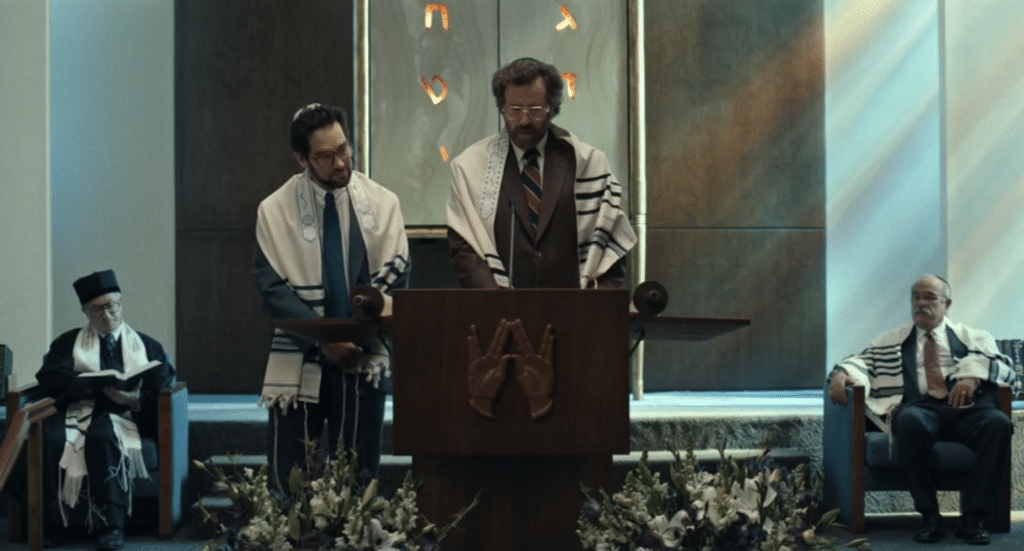
The Shrink Next Door opens with Phyllis Shapiro convincing her brother Marty to try therapy.
“He’s not a stranger!” she exclaims. “Rabbi Goldberg recommended him!”
Just like this scene depicts, the real story of Marty Markowitz and Ike Herschkopf is deeply Jewish. These characters are Jewish enough that a rabbi’s recommendation holds a great deal of weight, enough to convince a skeptic to try therapy.
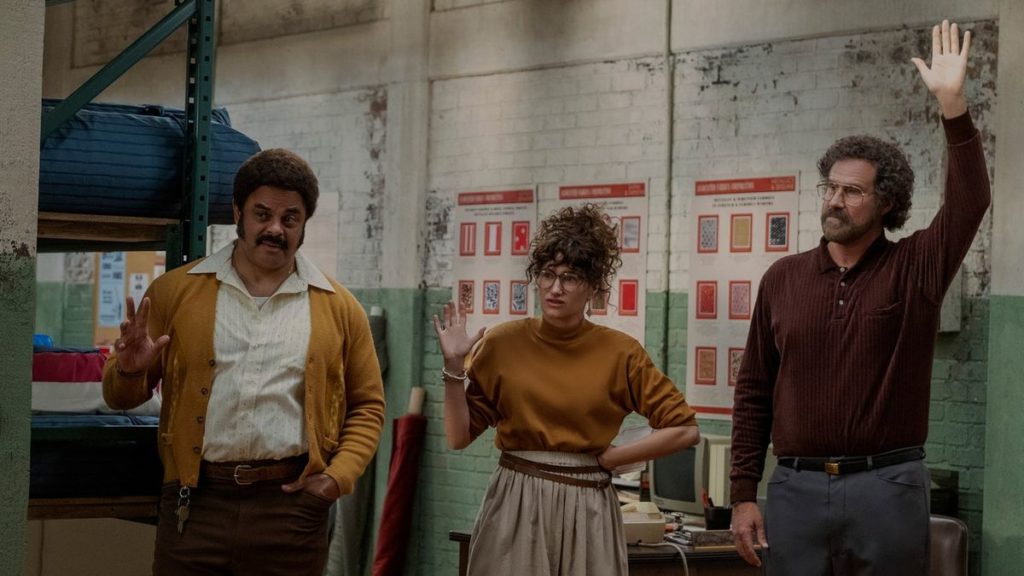
These are nuances that can’t be taken as a given. Time and again, we’ve seen the small-screen wipe stories of their Judaism.
Take for example HBO’s The Undoing, a series based on the very Jewish novel You Should Have Known by Jean Hanff Korelitz. As others have noted, the show completely (and disappointingly) erases its characters’ Jewishness without so much as a nod to the way they were originally written.
It’s partly understandable. In both The Undoing and The Shrink Next Door, Jewishness isn’t central to the plot.
In separate interviews, both Marty Markowitz and Joe Nocera, host of “The Shrink Next Door” podcast, said they don’t see The Shrink Next Door as a story about the Jewish community, according to the Times of Israel.
That’s because it’s not a Jewish community story, and it doesn’t illustrate a communal problem. Instead, the Jewish backdrop of the story serves as a way to deepen the authenticity of the narrative.
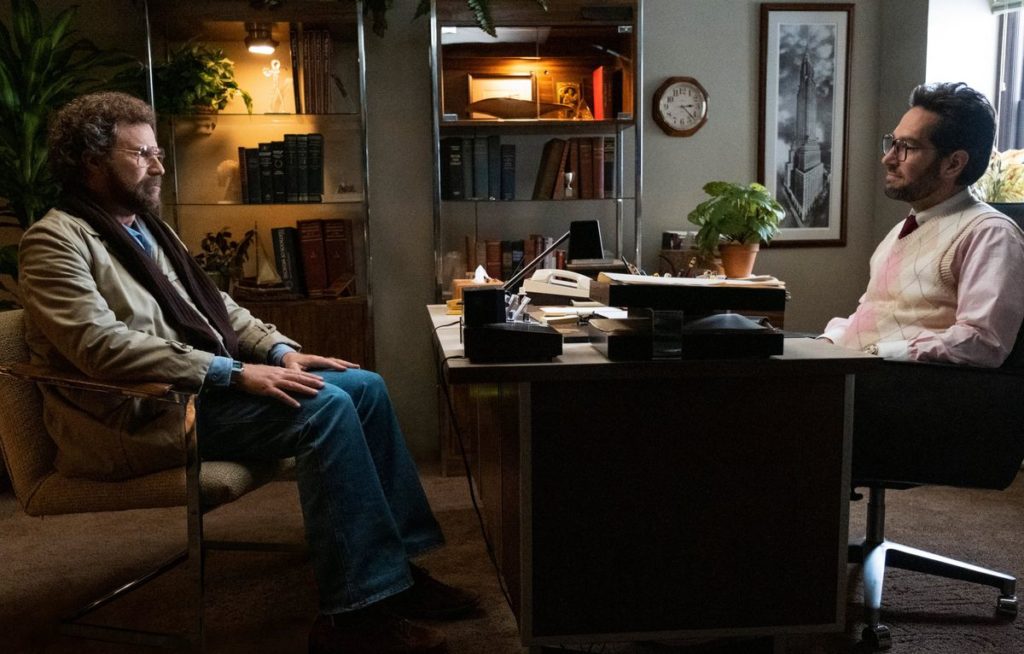
The Jewish history of The Shrink Next Door
The Shrink Next Door is immersed in Jewish references. Pages could, and have, been filled with the more intricate details of the very Jewish story. In particular, the setting is critical to understanding the Jewishness of the series.
Markowitz and Herschkopf are both part of New York City’s wealthy Modern Orthodox Jewish community. The primary settings of their relationship are in and around New York’s Upper West Side, Washington Heights and the Hamptons — all spots with large Jewish communities.
Washington Heights has particularly Jewish roots. The area is home to Yeshiva University, which moved to the neighborhood from the Lower East Side in the early 1900’s. This was the beginning of a large community of Jews there, with thousands who came to the area fleeing Nazi Germany.
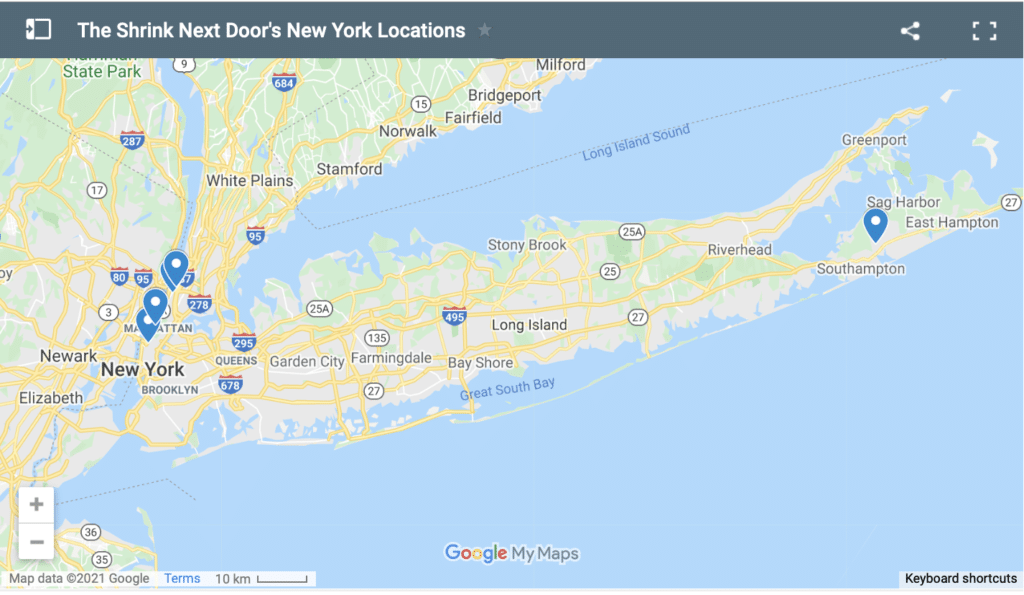
Jews in the garment industry
In the series, and in reality, Markowitz worked in the historically Jewish garment district as the owner of his father’s fabric factory.
As it happens, Manhattan’s garment industry was somewhat of a “welcome mat,” for Jewish immigrants in New York City, according to The Forward. “The jobs they found there, such as cutter, sewer and trimmings supplier, helped propel New York’s Jews into the middle class in the late 19th and early 20th century.”
So even Marty’s job in fabrics is actually really Jewish.
It’s understanding the Jewish milieu and nuances like the these, that enhance the authenticity of the story.
We've got a new update episode of our podcast The Shrink Next Door — listen to hear what's happened to Isaac “Ike” Herschkopf https://t.co/Buiqb1V2Ah
— Bloomberg (@business) April 22, 2021
In the podcast, when Markowitz breaks free from Dr. Herschkopf’s control, he begins to reconnect with his sister and listeners are brought into a Passover seder where Marty is reconnecting with his estranged family. It demonstrates the importance of Jewish culture in the story.
Other notable Jewish references include one episode focused entirely on Marty’s ‘second Bar Mitzvah,’ mentions of the column Ike Herschkopf wrote for the New York Jewish Week and that his parents were Holocaust survivors.
‘The Shrink Next Door’: New revelations about the Jewiest, screwiest podcast ever: After over 30 years under the mental sway of his psychiatrist, Marty Markowitz shares how one man took over his family life and business in No. 1 rated podcast https://t.co/iGMVPRyx7I Haaretz pic.twitter.com/EhWxMsppGP
— Jewish Community (@JComm_NewsFeeds) June 19, 2019
(Notably, the later two examples serve as a powerful reminder for the Jewish community that even seemingly valued members of our own are capable of terrible acts.)
The bottom line
Ultimately. the message is:
Just because Judaism isn’t central to the plot doesn’t mean the Jewish environment in which the plot takes place should be ignored.
HBO, take note: this series actually takes into account the Jewish backdrop of its story and embraces it.
Have you watched The Shrink Next Door? Let us know what you thought on Instagram, Twitter, and TikTok!
Originally Published Nov 18, 2021 12:02AM EST


